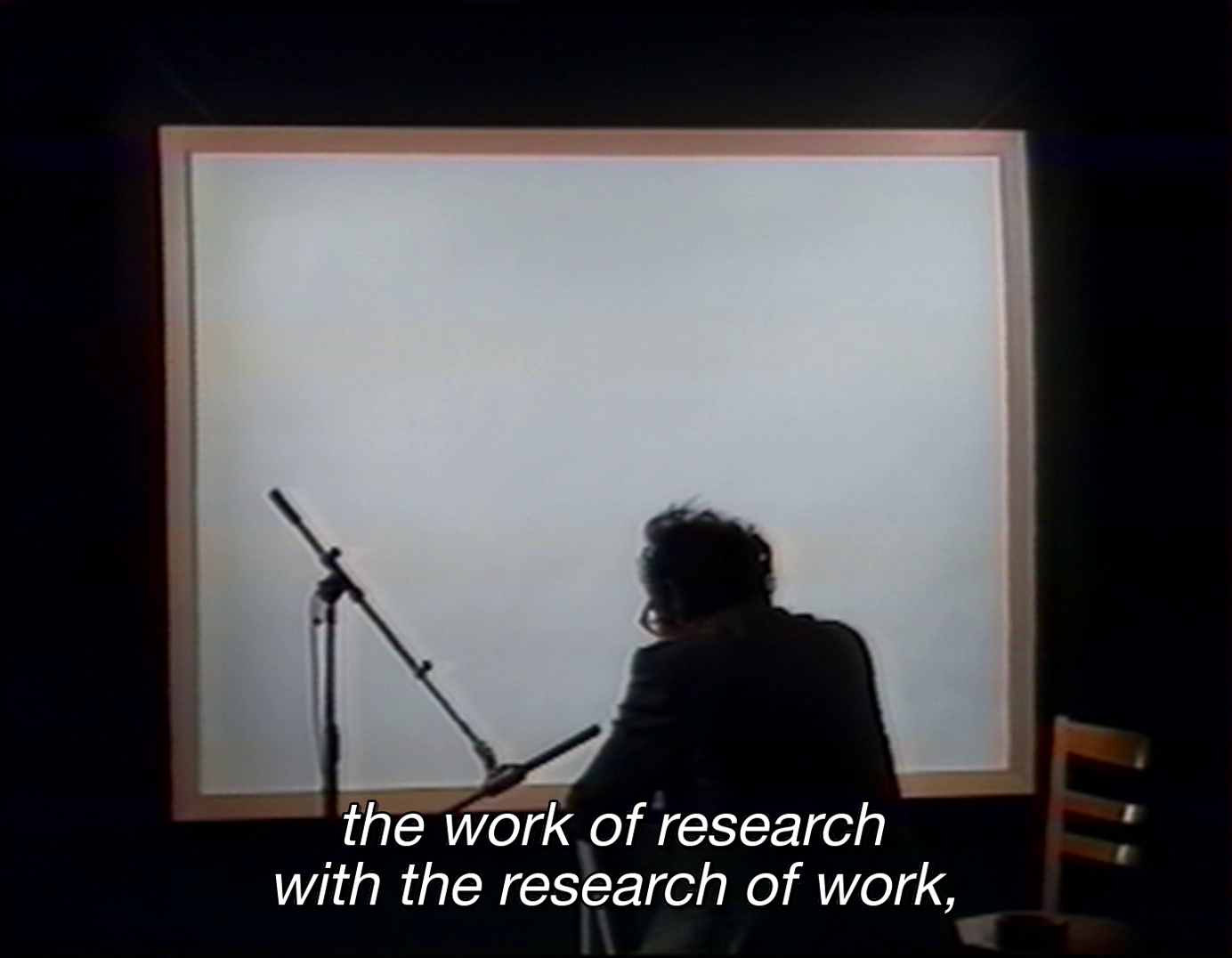The work of research 1978 / 2021

Jean-Luc Godard, Changer d'Image / To Alter the Image, 10 min, 1982. JLG in conversation with Nicole Brenez about making and not making images in Mozambique (French only). Further reading, among many more: Sarinah Masukor: An Imaginary Africa; Raquel Schefer: "Comment faire une télévision qui puisse servir le peuple sans desservir le pouvoir en place"? Sonimage dans le Mozambique révolutionnaire et un film mozambicain de Jean-Luc Godard.
‘I think that in the area of Information there needs to be more people dedicated to research, just as in industry. In industry it is perfectly admissible that part of a factory or a large company should have a research department where people can carry out research in whatever direction they like. In the industry of cinema, in Information, in the media, research departments don’t exist where new forms, forms that were never used before, can be experimented with. Different ways of interviewing people, of working . . . I think that all this should be studied. As President Mao says, “One shouldn’t speak without first doing research.” Before going to the peasants it is necessary to do a study of the peasants. Even if sometimes the person who is doing the research is herself of peasant origin. This has to be studied, because knowledge has to be given to other people that Mozambique exists. For this, the different parts of Mozambique have to be shown to other parts of Mozambique. Maybe the first time it is shown it will be done badly, or maybe not . . . but the most important thing, above all, is to show.’
See Jean-Luc Godard (1978), "Aprender e ensinar a Imagem no Moçambique independente". Tempo, 408: 32–33
Knowing that Ruth First would be the ideal person to organize research on the southern Africa subsystem, and that she herself wanted to get back into the frontline of revolution, Aquino suggested that she might be convinced to return to southern Africa to live and work in Mozambique. She came initially in 1977 to direct a study on Mozambican miners in South Africa, and finally left Durham definitively in 1978 to become the Assistant Director and Director of Research of the Centro de Estudos Africanos.
Tributes from her students at Durham make clear that Ruth's teaching was never "mediocre stuff," but in Mozambique the things she did so well - research, teaching, debate - assumed a much more direct force. The discussion of the research she directed was not confined to academic corridors; it raised questions of immediate import in the consolidation of the Mozambican Revolution. How will the accumulation fund for Mozambique's socialist development be generated? How can we extract ourselves from dependence on South African capitalism? How does one bring the peasantry into a program of socialist development? The cadres she trained had to be working Marxists, making strategically informed decisions everyday in their jobs.
[...]
Behind all of this experimentation was Ruth's conviction that scientific intellectual work is indispensable in a revolutionary struggle, although the professional intellectual is perhaps less so. She herself reveled in intellectual life and adored a sharp critical discussion of a novel or film, enjoyed talking about ideas, but was increasingly impatient with and bored by the existential self-torture of many intellectuals. The Development Course recruited students of extremely varied educational backgrounds; some had attended only primary school but had a good deal of work experience. The course aimed not to turn them into professional researchers but, rather, to train revolutionary cadres, seeing social investigations as a necessary part of their work.
Aquino de Bragança and Bridget O'Laughlin, The Work of Ruth First in the Centre of Africa Studies — The Development Course, in Review VIII, 2, Fall 1984, 159-17.